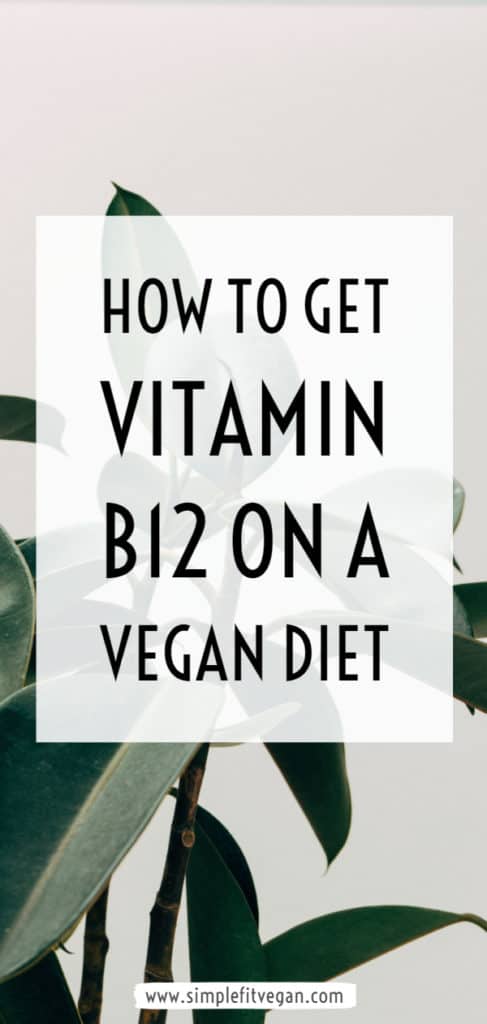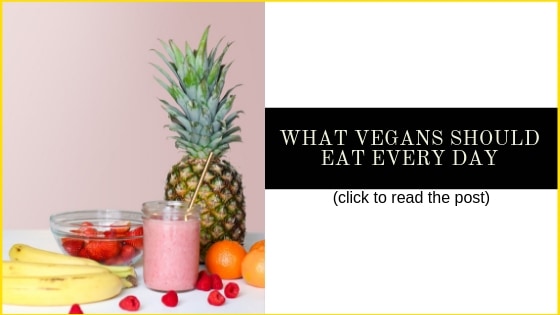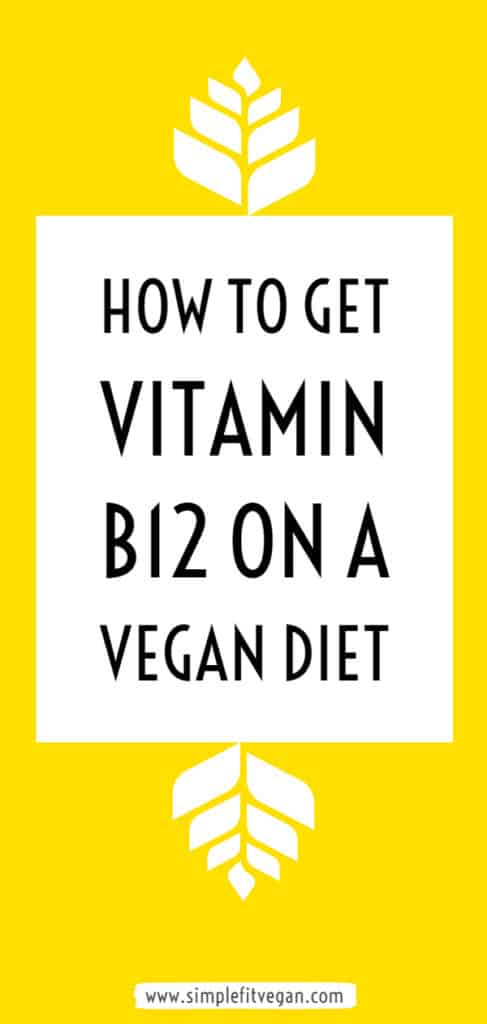My brand new cookbook is out on Amazon! It’s called “30-Minute Plant-Based Recipes” and it’s perfect for busy vegans. Grab it now!

Whether you are a newly vegan or have been vegan for a while, chances are you’ve heard about Vitamin B12. Our bodies are unable to produce this vitamin on its own. We get it either from food or supplements.
Vitamin B12 is naturally present in animal products such as meat, fish, and dairy. It isn’t present in plant foods. This puts vegetarians and vegans at risk of developing Vitamin B12 deficiency.
Function
- Helps convert carbs, fat, and protein into usable energy.
- It maintains protective sheaths that surround nerve fibers and keeps the nerve cells healthy.
- It’s required for DNA synthesis. It’s crucial during the periods of high growth (i.e. children) because it supports cells that produce rapidly.
Deficiency Symptoms
- Megaloblastic anemia – abnormal red cells appear in the blood without proper cell division facilitated by vitamin B12. As a result, blood cells carry less oxygen, which results in fatigue, palpitations, and pale skin. It’s important to note that this condition
maybe masked in many vegans because vegan diets are naturally high in folate. Folate, along with vitamin B12, helps with red cell division. - Nerve damage – common symptoms are confusion, depression, irritability, mood changes, inability to concentrate, numbness and tingling in fingers, arms, and legs.
- Elevated blood levels of homocysteine – when Vitamin B12 decreases in the
blood stream , homocysteine increases. Homocysteine is a common amino acid found in blood. Increased levels of it cause arteries to clog which can lead to heart decease or a stroke.
Good news is that all of the above can be easily avoided through proper intake of vitamin B12 which I’ll talk about in just a minute.
How to know if you have a deficiency
Do not wait until you experience the deficiency symptoms. Go see your doctor if you can and get blood tests. There isn’t one blood test that will tell you whether or not you are deficient in B12. Often doctors will have to order a combination of two tests to measure two properties in your blood to determine whether there is sufficient levels of B12.
How to get Vitamin B12
Option 1: Take a B12 supplement. You can take it in small doses every day (25 mcg/day) or a larger dose twice a week (2000-2500 mcg/2x week). Keep in mind that only 1% of B12 is absorbed into the bloodstream from supplements. The excess is excreted.
Option 2: Consume B12 fortified foods every day. Make sure each serving has at least 2 mcg (1/3 of daily value). Some examples of fortified foods are non-dairy milks, vegan meat substitutes, breakfast cereals, energy/granola bars, and nutritional yeast.
How much to take
The official Recommended Dietary Allowance is 2.4 mcg for adults each day. However, the research suggests it’s vise to take more than that to avoid complications, 4-7 mcg / day.
Remember that the body only absorbs a fraction of the whole Vitamin B12 amount consumed at once. For example, if you take a supplement of 250 mcg, the body will only absorb 2.5 mcg and won’t be able to absorb more for 6 hours.
People particularly at risk
Pregnant women and adults over 50 should be particularly attentive to their B12 intake.
Deficiency during pregnancy and lactation is especially risky as this can result in severe nerve damage in infants.
Adults over 50 should also pay close attention to make sure they aren’t deficient due to malabsorption.
My brand new cookbook is out on Amazon! It’s called “30-Minute Plant-Based Recipes” and it’s perfect for busy vegans. Grab it now!


Leave a Reply